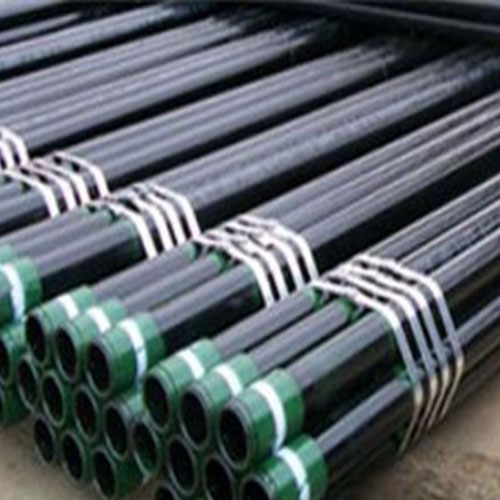Advantages of Using API casing in Oil and gas Wells
API casing, or american petroleum Institute casing, is a type of Pipe that is used in oil and gas wells to protect the wellbore and ensure the safe and efficient extraction of oil and gas. API casing is made from high-strength steel and is designed to withstand the extreme pressures and temperatures that are encountered in oil and gas wells.
oil pressure gauge pipe kit
One of the main advantages of using API casing in oil and gas wells is its ability to provide structural support to the wellbore. The casing is installed in the wellbore and cemented in place to prevent the collapse of the wellbore walls and to ensure that the well remains stable during drilling and production operations. This structural support is essential for maintaining the integrity of the well and preventing any potential accidents or leaks.
titanium forging
Another advantage of using API casing in oil and gas wells is its ability to protect the wellbore from corrosion and other forms of damage. The casing acts as a barrier between the wellbore and the surrounding rock formations, preventing the infiltration of corrosive fluids and gases that can cause damage to the wellbore and reduce the efficiency of the well. By using API casing, operators can ensure that their wells remain in good condition and continue to produce oil and gas at optimal levels.
In addition to providing structural support and protection, API casing also plays a crucial role in the production of oil and gas from wells. The casing is used to isolate different zones in the wellbore and to control the flow of fluids from the reservoir to the surface. By using casing, operators can prevent the mixing of fluids from different zones and ensure that the oil and gas are produced in a safe and efficient manner.
Furthermore, API casing is designed to withstand the harsh conditions that are encountered in oil and gas wells. The casing is made from high-strength steel that is capable of withstanding high pressures, temperatures, and corrosive environments. This durability ensures that the casing can perform effectively in even the most challenging well conditions and provides operators with the confidence that their wells will continue to produce oil and gas without any issues.
Overall, the use of API casing in oil and gas wells offers a wide range of advantages that contribute to the safe and efficient production of oil and gas. From providing structural support and protection to controlling fluid flow and withstanding harsh conditions, API casing plays a crucial role in ensuring the success of oil and gas operations. By using API casing, operators can maximize the productivity of their wells and minimize the risks associated with drilling and production activities.
Common Types of API Casing and Their Applications
API casing, or American Petroleum Institute casing, is a type of pipe that is used in the oil and gas industry to protect and support the wellbore. Casing is essential for drilling operations as it helps to prevent the collapse of the wellbore and ensures the integrity of the well. There are several common types of API casing that are used in different applications, each with its own unique characteristics and benefits.
One of the most common types of API casing is seamless casing. Seamless casing is made from a single piece of steel that is heated and then stretched to form a seamless tube. This type of casing is known for its high strength and resistance to corrosion, making it ideal for deep drilling operations where the wellbore is subjected to high pressures and temperatures. Seamless casing is also preferred for its smooth surface, which reduces friction during drilling and allows for easier installation.

Another common type of API casing is welded casing. Welded casing is made by welding together individual steel plates to form a tube. While not as strong as seamless casing, welded casing is still a popular choice for shallow drilling operations where the wellbore is not subjected to extreme pressures. Welded casing is also more cost-effective than seamless casing, making it a practical choice for less demanding drilling applications.
In addition to seamless and welded casing, there are also specialized types of API casing that are designed for specific applications. For example, conductor casing is used at the surface of the well to support the weight of the drilling rig and protect the wellbore from external forces. Conductor casing is typically larger in diameter and thicker than other types of casing to provide additional strength and stability.
Another specialized type of API casing is production casing. Production casing is used to isolate the production zone from other formations and prevent the migration of fluids between different layers of rock. Production casing is typically cemented in place to create a barrier that seals off the production zone and ensures the efficient extraction of oil and gas.
Welded Steel Pipe
In summary, API casing plays a crucial role in the oil and gas industry by protecting and supporting the wellbore during drilling operations. There are several common types of API casing, including seamless, welded, conductor, and production casing, each with its own unique characteristics and benefits. Whether drilling in deep or shallow formations, choosing the right type of casing is essential to ensure the integrity and success of the well. By understanding the different types of API casing and their applications, drilling operators can make informed decisions that lead to safe and efficient drilling operations.
